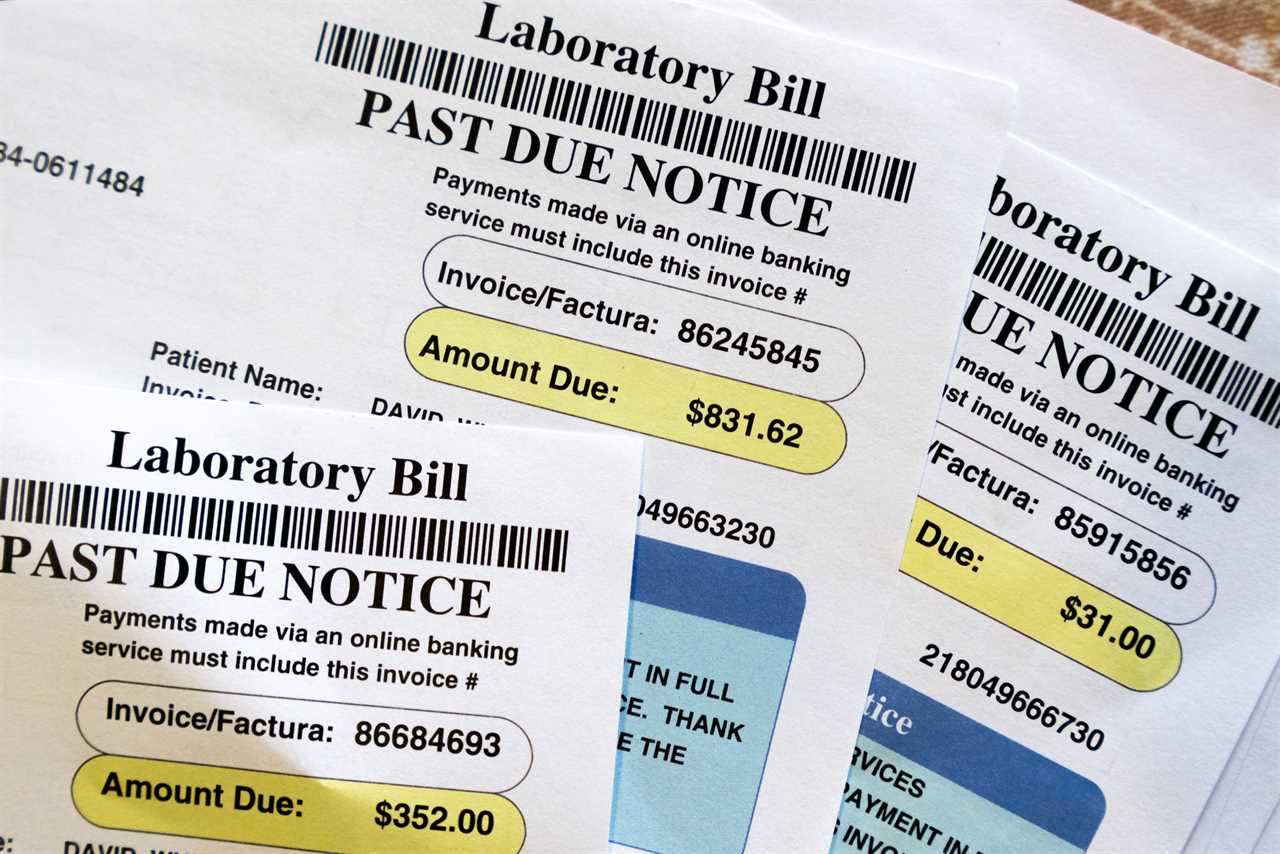
Hospitals and insurers are racing to find new artificial intelligence tools to give them an edge in billing and processing their part of the $4 trillion in medical expenses Americans accrue each year.
As one of the largest parts of the U.S. economy undergoes perhaps its biggest transition in decades, billions of dollars are at stake — not only for health care providers and insurers, but also for the government, which handles millions of Medicare and Medicaid claims every year.
For providers, the dream is an AI tool that can quickly and aggressively code procedures and file claims. Insurers — and the government agencies that pay for health care — want comparable technology to scrub those bills.
“Everyone's trying to maximize revenue while towing the line on, effectively, fraud,” said Nick Stepro, chief product and technology officer at Arcadia, a company that works with health care organizations on both sides of the divide looking to build the technology.
It’s true, he believes, that advanced AI will bring a host of positive impacts to the health system — but perhaps not before it further inflames the feuds over bills between your health plan and your medical provider.
“Now, all of a sudden, you have this massive superpower that is generative AI,” he said. “That's going to let people move really, really, really quickly in this space — and sort of create an arms race.”
Getting there first isn’t only about winning the billing wars: Both providers and insurers hope to reap efficiencies if they can downsize their huge administrative workforces, reduce liability or speed up their paperwork processing.
For policymakers, AI is adding a wrinkle to Washington’s perpetual fretting over the high cost of health care.
Some in Congress and President Joe Biden want to streamline the prior-authorization process insurers require before they approve some treatments. Washington’s also taking another look at how surprise billing is handled — a 2020 law has thus far failed to stem the disputes between providers and insurers over care patients received unwittingly from out-of-network doctors.
Nearly everyone in health policy is trying to figure out how to stretch a beleaguered workforce facing growing demand for care.
But Congress has barely begun to grapple with how AI could affect these issues. And the administration is just beginning to work out its approach to regulating the technology — even as the ground is shifting for hospitals, doctors and insurers vying for a tech edge.
‘We need to have an AI strategy’
Business is booming for Punit Soni, CEO of the health AI company Suki.
“We are seeing that every health system across the country is saying: ‘We need to have an AI strategy,’” he said.
Soni’s company aims for the trifecta his provider clients want — happier clinicians, more patients and more money — by assisting doctors in taking notes and coding the care delivered. Buyers of the company’s tools are sometimes seeing revenue rise over 20 percent, he said — and seeing denials fall by nearly the same amount.
“When we meet health systems, we give them a buffet, and we say: ‘Here's a bunch of things we can impact that matter to you,’” he said. “All three are really serious [return-on-investment] objectives.”
For hospitals amid a money crunch, Soni’s promises are soothing.
According to credit rating firm Fitch Ratings, they lack cash and face ongoing struggles to staff their facilities. They’re also bracing for a 3.4 percent cut in Medicare reimbursements to doctors in January, unless Congress acts to avert it. Doctors describe the pending cut as an existential threat to their practices.

The health industry could see more defaults in 2024 compared with earlier years, a recent Moody’s analysis found.
More than 20 health, tech and policy leaders interviewed for this story — as well as presenters at the Healthcare Information and Management Systems Society conference on AI earlier this month in San Diego — underscored that interest in how artificial intelligence will affect the industry’s bottom line is front-of-mind. Even AI that benefits patient care and betters administrative systems has to be paid for, they said.
Some health systems told POLITICO they want to reap savings by coding their bills more accurately and, therefore, reducing their liability.
Others highlight the benefits of reducing the labor needed to complete administrative tasks. And nearly all providers are keenly interested in making their staff happier by reducing burnout.
Health system executives said they want to see tangible progress on their AI investments every 90 days, and they’re partnering with tech companies and even other health groups to produce results faster.
There’s another reason for hospitals and doctors’ practices to proceed swiftly and deliberately: The insurers that pay their bills have long sought ways to better scrutinize the charges, and AI is just the latest tool, said Anders Gilberg, senior vice president of government affairs at the Medical Group Management Association, a doctors’ group.
He said doctors often fear overcoding because of the stiff penalties that can come with it. But he also acknowledged another way they may think about it.
“One could say, ‘all is fair and love and war — the payers are using it, the providers should too.’”
‘The perfect storm coming’
Some of the biggest health insurers — including Humana and UnitedHealth — face lawsuits claiming they are using AI to deny care.
The plaintiffs in the suits, filed this fall, argue the companies rejected doctors’ orders more often after embracing AI tools to monitor care.
A spokesperson for naviHealth's nH Predict tool, cited in the UnitedHealth and Humana suits, said the plaintiffs misunderstand the role of the technology — that it’s used to evaluate what care may be needed, not to decide whether to approve it.
Humana and UnitedHealth declined to comment on the pending litigation. Each of the companies said it wants to implement the tech in ways that both promote patient wellbeing and increase efficiency.
More broadly, insurers say they are making major investments in AI, both to cut their own administrative costs and to weed out fraud in the bills they receive.
“It feels like the perfect storm coming of the technology really becoming a more significant asset to the company if deployed correctly,” said Craig Richardville, chief information officer of Salt Lake City-based Intermountain Health, which does business as both a provider and payer.
The government, meanwhile, is caught in the middle. Every year, it incurs $60 billion in fraudulent Medicare bills, according to government estimates. Medicaid fraud costs the states and federal government tens of billions more.
The government already creates many of the rules that govern health care billing and is using AI to combat fraud, according to the National Health Care Anti-Fraud Association, an alliance of government agencies and private insurers.
A spokesperson for the Centers for Medicare and Medicaid Services said in a statement that “CMS continually assesses opportunities to safely and responsibly leverage new, innovative strategies and technologies, including AI, to more effectively accomplish its mission.”
At the same time, the agency has to answer to patients skeptical of strict anti-fraud measures that can result in denied care. Starting Jan. 1, CMS will begin requiring the private insurers who run Medicare plans to ensure they’re “making medical necessity determinations based on the circumstances of the specific individual, as opposed to using an algorithm or software,” according to congressional testimony.
‘It's going to add gasoline’
When insurers and providers can’t agree on a bill, it’s often patients caught in the middle — or stuck on hold waiting to talk to a customer service representative.
If AI helps insurers deny care, or amps up the fights between medical providers and health plans over bills, will patients have to mediate?
The 2020 legislation Congress passed to help patients who receive surprise medical bills from providers outside of their networks underscores the policy thicket.
A mediation process set up by the Department of Health and Human Services to sort out the bills has received more than 20 times as many claims from providers as the government anticipated, and 60 percent remain unresolved, according to a recent tally. This month, the administration said it was reworking its process.
Still, both providers and insurers say they expect the AI takeover of the billing process to help patients more than it hurts them.
“Do I think people will use it as a hammer?” said John Couris, president and CEO of Florida Health Sciences Center, which runs Tampa General Hospital, of the technology. “I mean, I think they probably will — on both sides.”
But Couris said the health industry is mostly just “desperate” for AI products that fix the complicated billing systems that so frustrate patients.
Even so, policymakers charged with making sure that happens are just beginning to evaluate their role.
Some House Democrats, including Reps. Judy Chu of California and Jerry Nadler of New York, have opened an inquiry into whether private plans in Medicare are too quick to use AI to deny care, while others, from Senate Majority Leader Chuck Schumer (D-N.Y.) to Rep. Cathy McMorris Rodgers (R-Wash.), are holding hearings and forums on how the tech will change the way doctors treat patients — and bill for that treatment.
Mostly, Congress is just beginning to talk about legislation. Sens. John Thune (R-S.D.) and Amy Klobuchar (D-Minn.) introduced a bill last month that would task the Commerce Department with conferring with other agencies to begin the process of setting some guardrails.
Biden issued an executive order in October that set some reporting deadlines for agencies to assess what should be done. HHS issued transparency rules for health AI earlier this month, but its focus was technology used in clinical decision-making, not billing.
Meanwhile, nearly every aspect of the health care industry is trying to gain an advantage with major stakes: AI’s role in billing could impact the sustainability of Medicare, Medicaid and private insurers, as well as hospitals, clinics and providers of all kinds.
Stepro of Arcadia, who’s helping both providers and insurers build the tools they hope will help them thrive, senses the urgency.
“It's going to add gasoline to a lot of existing tension in how money flows in health care,” he said.
Chelsea Cirruzzo contributed to this report.
----------------------------------------
By: Daniel Payne
Title: AI’s big test: Making sense of $4 trillion in medical expenses
Sourced From: www.politico.com/news/2023/12/31/ai-medical-expenses-00132557
Published Date: Sun, 31 Dec 2023 07:00:00 EST






